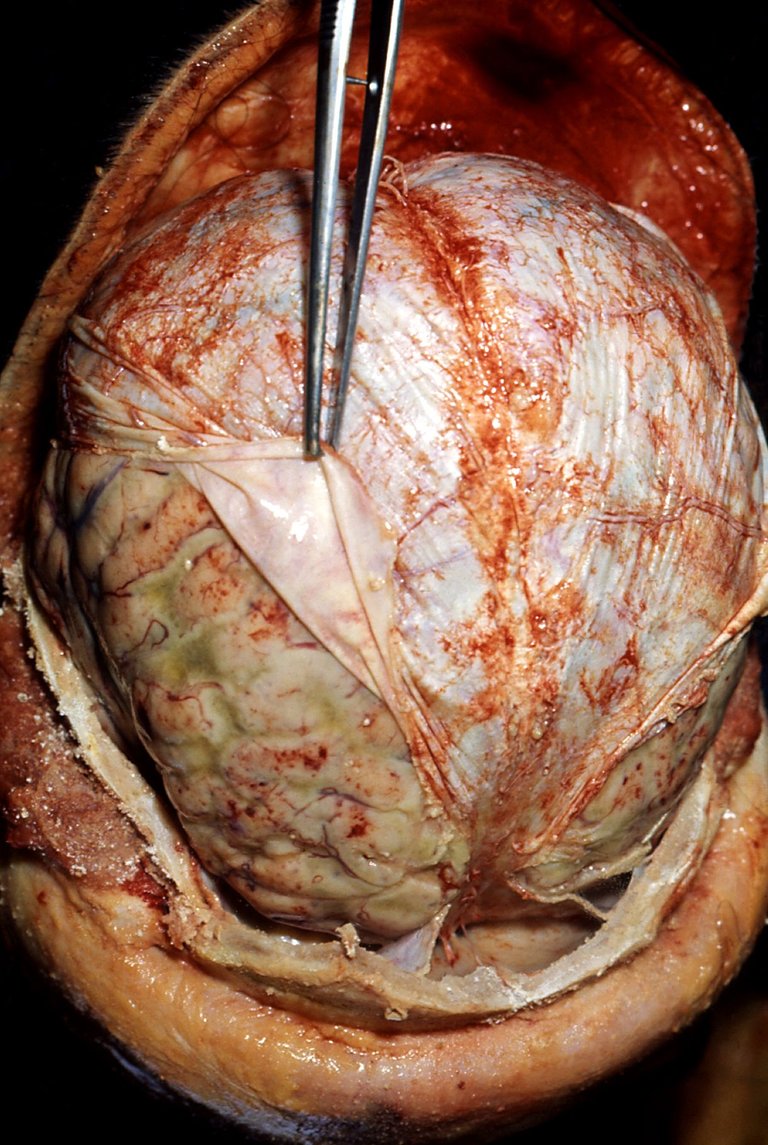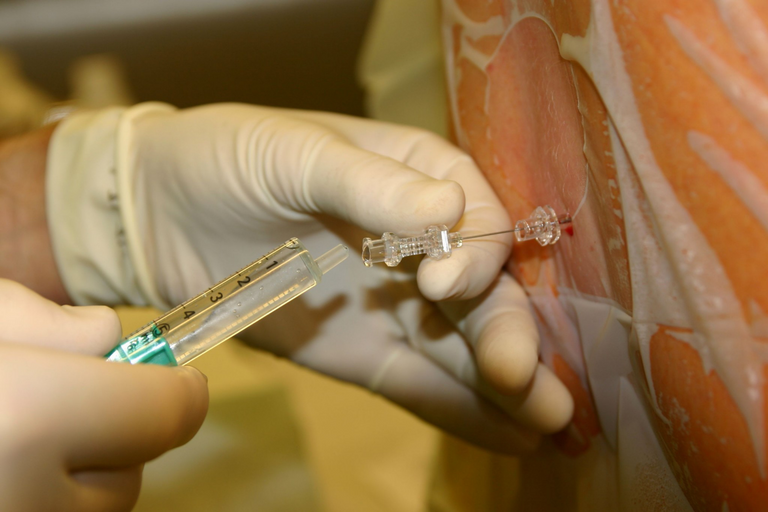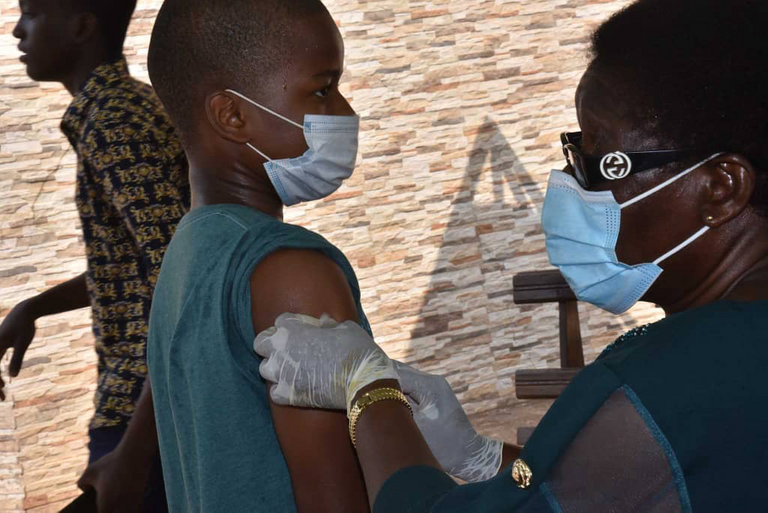ACUTE BACTERIA MENINGITIS - THE SEASON IS APPROACHING!

By Photo Credit: CDC/ Dr. Edwin P. Ewing, Jr., Public Domain, Wikimedia
It is a disease that occurs throughout the world but is commonest in regions described as the meningitis belt of sub-Saharan Africa. This belt spans from Senegal to Ethiopia and includes countries like Ghana, Burkina Faso, Kenya, South Sudan, Uganda, Nigeria, Mali, Guinea, etc.
Meningitis outbreaks occur in these regions mainly in the hot and dry seasons which is the season that we are going into now in many parts of Africa. So we need to know and be on the lookout for this disease.
As I said at the beginning, acute bacterial meningitis is caused by bacteria. The commonest among them is streptococcus pneumonia which occurs sporadically. However, Neisseria meningitides is the commonest implicated organism when epidemics of meningitis occur. Other common organisms causing meningitis include Haemophilus Influenza, L. Monocytogens, etc.
These organisms gain entry into the body majorly through the nose and respiratory system from where they migrate to the brain and spinal cord through either the bloodstream, direct contact, or neuronal pathway.
In the brain, they start multiplying rapidly and cause the release of pro-inflammatory cytokines, with subsequent inflammation, damage to the blood vessels in the brain, pus formation, increased permeability of the blood-brain barrier, etc. All these lead to damage and abnormal functioning of the structures in the brain.
This abnormal functioning of the brain structures results in symptoms that the patient will start to notice. These symptoms usually occur in a triad of fever, headache, and neck stiffness (pain when turning the neck). However, for some people, it might just be a fever or headache which people most times take to be malaria and typhoid in this environment.

By Simon James from Darlington, UK - CC BY-SA 2.0, Wikimedia
The fever in meningitis occurs suddenly and it is always a high-grade fever. Other symptoms of meningitis may include loss of consciousness, generalized weakness, convulsions, nausea, vomiting, etc.
RISK FACTORS
There are people at high risk of getting meningitis and they include those who recently traveled to a meningitis-endemic region. Those who live in overcrowded houses with poor ventilation, boarding schools and students hostels. Poverty, malnutrition and reduced immune states HIV, Diabetes, and drugs that reduce the body's defense system.
Those who have infections of the ear, sinuses, lungs, etc. Unvaccinated children and adults are also at increased risk. Those less than 5 years and those greater than 50 years are at relatively more risk though meningitis can affect anybody at any age. So, we all need to protect ourselves.
DIAGNOSIS AND TREATMENT
In addition to the symptoms above, a test is usually done to make a diagnosis of meningitis. This test is done by analyzing the fluid that circulates the brain and spinal cord. This fluid is called the cerebrospinal fluid (CSF) and the test is called cerebrospinal fluid analysis. The CSF is gotten through a lumbar puncture which is making an opening at the lumber spine to tap the fluid.

By DocP - Own work, CC BY-SA 2.0 de, Wikimedia
Other investigations will include a blood culture, random blood glucose, electrolytes, urea and creatinine, full blood count, coagulation profile, neuroimaging, etc. These all help to know the patient's clinical state and institute a proper management plan.
The treatment of acute bacterial meningitis is mainly medical using antibiotics. When detected early and treated properly, there is a fast response and recovery. But late diagnosis and treatment may result in serious complications or death.
Meningitis caused by streptococcus pneumonia can be very serious with about 50% of those infected dying from it. Those who eventually survive may be left with hearing loss, impairment of understanding and reasoning abilities, etc. So prevention is very very important.
PREVENTION
Acute bacterial meningitis is very preventable, especially the fact that we have vaccines to protect us from this disease. The various available vaccines offer very strong protection from meningitis. They are the meningococcal and streptococcal vaccines as well as the Haemophilus Influenza type b vaccine.

By Ugochukwu2007 - Own work, CC BY-SA 4.0, Wikimedia
There are also available drugs for chemoprophylaxis. Good housing, reduced overcrowding, and environmental and personal hygiene are all important steps in the prevention of acute bacterial meningitis.
In conclusion, acute bacterial meningitis is common in this part of Africa and occurs most commonly in the dry and harmattan season which is the season that we are entering now in this environment. Therefore, we must all be aware of this infection and be on alert to see a doctor in any case of fever, headache, or neck pain (neck stiffness).
It is also important to know that in some cases, the initial symptom of meningitis may just be a high-grade fever or headache. And then other symptoms follow when not treated. So we must be aware and have a high index of suspicion as well as get ourselves vaccinated where necessary.
Thank you for reading and enjoy your weekend.
For references and further information on acute bacterial meningitis, please check the resources below:
Thanks for your contribution to the STEMsocial community. Feel free to join us on discord to get to know the rest of us!
Please consider delegating to the @stemsocial account (85% of the curation rewards are returned).
Thanks for including @stemsocial as a beneficiary, which gives you stronger support.
Thanks so much for the support @stemsocial . I appreciate
Nice writeup. Thanks for sharing sir.
You're very welcome